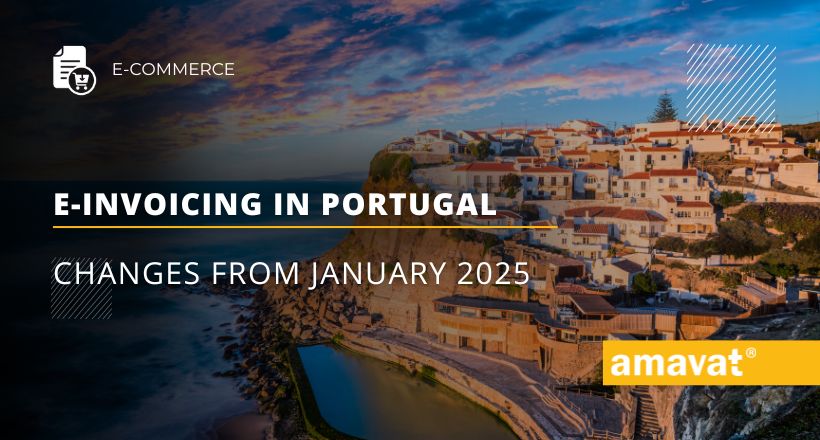E-invoicing in Portugal: Changes from January 2025
The Portuguese business landscape is undergoing a dynamic transformation, with one of the key elements of this change being the growing importance of e-invoicing, especially in business relations between the public sector and enterprises. The Portuguese government is decisively moving towards digitization, introducing increasingly stringent requirements for electronic invoicing aimed at improving the efficiency of business processes and compliance with EU regulations.
E-invoicing B2G in Portugal: What does it mean for e-commerce sellers?
E-Invoicing B2G (Business-to-Government) in Portugal plays a crucial role in facilitating interactions between businesses and the public sector. It is part of broader efforts by the European Union towards standardization and digitization of public procurement. Directive 2014/55/EU requires member states, including Portugal, to adopt mandatory electronic invoicing in public procurement processes.
Since April 18, 2020, Portuguese authorities have committed to accepting electronic invoices from government vendors. Gradually, the e-invoicing process for the public administration in Portugal is becoming mandatory for all sellers, covering all levels of administration (national, local, and regional). This is a significant step towards the digital transformation of public administration, aimed at streamlining processes and improving efficiency.
Implementation schedule of e-invoicing in Portugal: New changes from January 2025
- April 2019: The public administration began to mandatorily receive electronic invoices.
- January 2021: Large companies started mandatorily issuing electronic invoices for the public administration.
- January 2025: Micro, small, and medium-sized enterprises are required to comply with e-invoicing.
eSPap: Foundation of e-invoicing in Portugal
The governmental entity responsible for configuring and maintaining the e-invoicing system in Portugal is the “Entidade de Serviços Partilhados da Administração Pública I.P.,” also known as eSPap. The e-invoicing portal, FE-AP, was created by eSPap and is the main tool for processing and transmitting electronic invoices in the public administration. Public entities providing direct management services must use this solution, while other public entities may use other portals; however, sellers are encouraged to consult with the relevant authorities to determine the appropriate portal.
How does B2G e-invoicing work in Portugal?
According to Portuguese regulations, an e-invoice must be issued, transmitted, and received in a structured electronic format. This means that data must be processed in an automated manner, enabling automatic importing of invoices into the public entity’s system. Electronic invoices must be generated and transmitted in XML format, such as CIUS PT and UBL 2.1 or other formats compliant with European standards. Invoice transmission is done via web service, and eSPap is responsible for publishing technical and functional requirements. User support in the registration, testing, and deployment of ERP accounting software ensures maximum smoothness and seamlessness in the e-invoicing implementation process.
What are the consequences of non-compliance with e-invoicing requirements?
Failure to comply with e-invoicing requirements in Portugal can lead to various legal and operational consequences for businesses. Primarily, an invoice that does not meet the B2G electronic invoicing rules may be rejected by the public administration, potentially preventing payment for services or products provided. Additionally, non-compliance with e-invoicing obligations may result in financial penalties or other sanctions from regulatory authorities.
Summary
For e-commerce sellers in Portugal, B2G e-invoicing presents new challenges but also opportunities. Implementing an e-invoicing system may require adjustments to accounting systems and business processes, but it can also accelerate and facilitate transactions with the public sector, bringing benefits such as faster payments and greater transaction transparency.
Therefore, to avoid potential compliance issues and maximize the benefits of B2G e-invoicing, e-commerce sellers in Portugal should be aware of and actively monitor changes in regulations and adjust their business processes to meet new digital requirements.
For any questions or additional information, we encourage you to contact our team of experts, ready to provide assistance and support: Contact us – amavat®.





